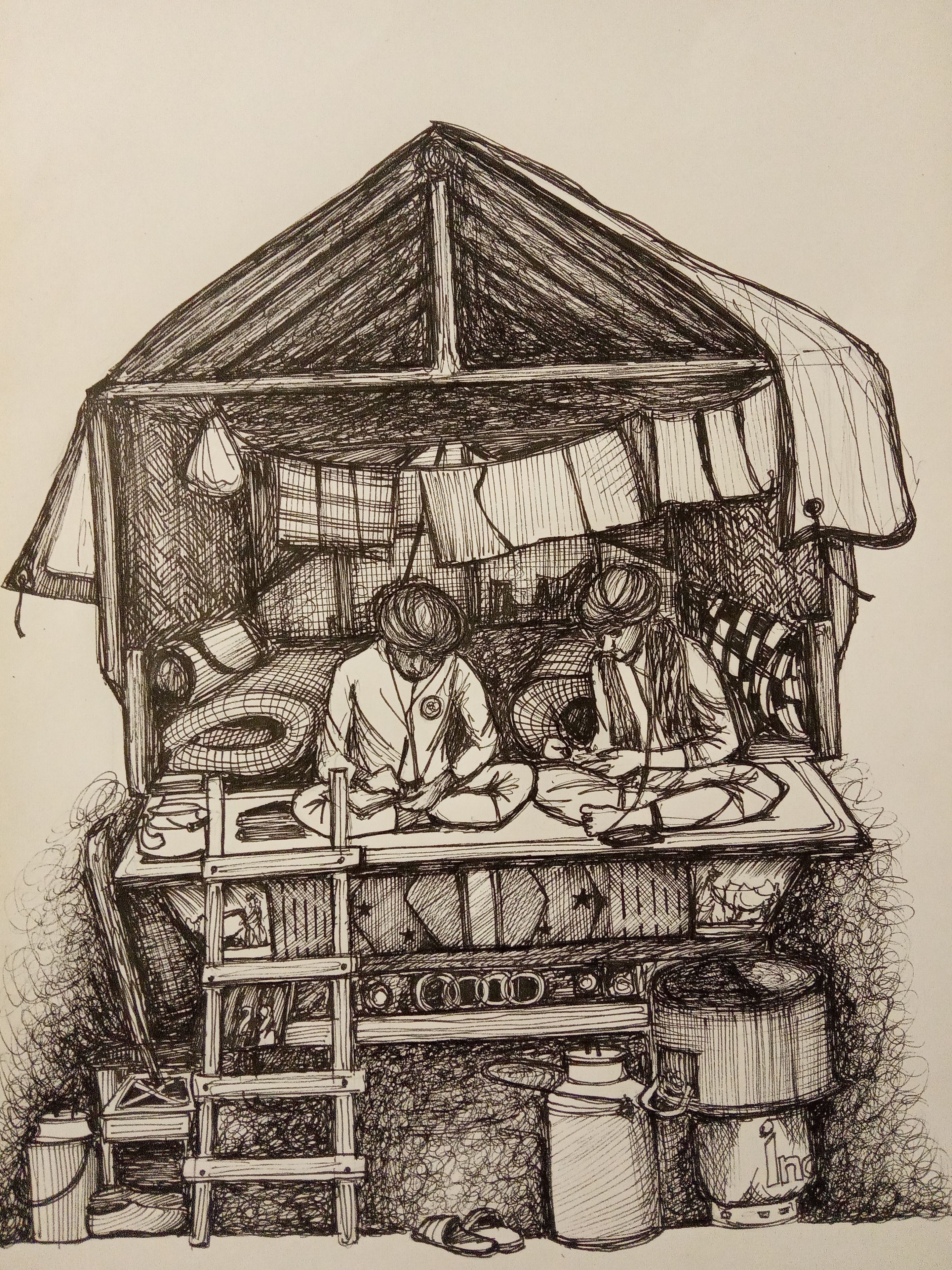It’s once again time for us to help your eardrums get some anthropological loving in collaboration with our dear friends, New Books in Anthropology. Below you’ll find a carefully curated list of the best interviews with anthropologists (and a few closet anthropologists), all speaking about their brand new books.
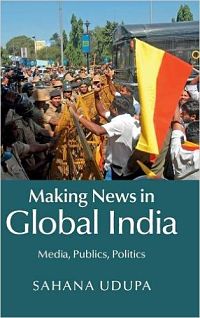
by Sahana Udupa
(Cambridge University Press 2015)
What role does Bangalore’s private news culture play in shaping the southern Indian metropolis’ ongoing urban transformation? Sahana Udupa’s new book answers this question through an ethnography of the city’s bi-lingual news media. Exploring differences amongst the English language and local language press, class-based civic activism, novelties in news room practices and layers of journalistic identities, the book shows the ways in which a certain type of aspiration that has come to characterize some news outlets, conflicts and contends with the visibility of local urban cultures and the struggle for dominance amongst different actors in the news field.
Interview by Ian M. Cook
Listen here or here:
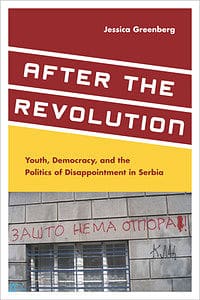
by Jessica Greenberg
(Stanford University Press 2014)
Jessica Greenberg’s new book explores a dual tension at work in Serbia in the early 2000s. She reveals young people’s disappointment in what they saw as a betrayal by their parents’ generation that led to the collapse of Yugoslavia and the failure of democracy in Serbia, as well as adults’ disappointment that young people did not live up to expectations of what student activists should be. This “politics of disappointment”opened up new understandings of democratic engagement on the part of Serbian students, resulting in activism that utilized “quality” protests, expertise in administrative reform, and procedural participation in politics.
Interview by Amanda Jeanne Swaine
Listen here!
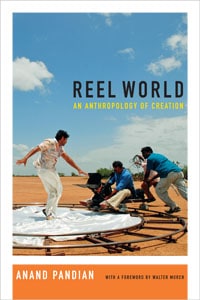
by Anand Pandian
(Duke University Press 2015)
Do we live in a real world or a ‘reel world,’ in which life begins to feel like a film? In this ethnography of the Tamil film industry, Anand Pandian explores topics as grand, rich and timeless as those explored in film itself – love, desire, rhythm, wonder – as a way of unpacking what it means to be creative. In doing so the book takes its readers from the deserts of the middle east and the mountains of Europe to India’s archaeological sites and less trodden city streets. Interview by Ian M. Cook
Listen here and here:

by D. Asher Ghertner
(Oxford University Press 2015)
D. Asher Ghertner explores why the ways things look are fundamental for Delhi’s transformation into a “world class”city. Based on ethnographic engagement in one of the city’s slums that is destined to be demolished, the book weaves the experiences of these slum dwellers together with an analysis of middle class Resident Welfare Associations, legal rulings, influential reports, and idle chatter to argue that mapping and surveying are no longer the primary means for administering urban space. Rather it is a set of vague and powerful aesthetic norms derived from notions of what it is to be world class that set the contours of Delhi’s change. Interview by Ian M. Cook
Listen here or here:

by Bard Kartveit
(Brill 2014)
Bard Kartveit’s new book carefully describes the constraints faced by Palestinian Christians, particularly in the unique context of the Bethlehem area, exploring the ways in which such realities are experienced and narrated in relation to questions of identity. Tradition, modernity, kinship, patriarchy, sectarianism, nationalism, state power, migration and the decisive role of the Israeli Occupation are all given their due. Interview by Mark Calder
Listen here and here:
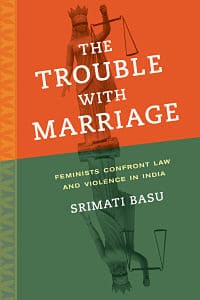
by Srimati Basu
(University of California Press 2015)
Are solutions to marital problems always best solved through legal means? Should alternative dispute resolutions be celebrated? In her latest book Srimati Basu answers such questions and many more through explorations of ‘lawyer free’ courts and questions surrounding understandings of domestic violence, analyses of the way rape intersects with marriage and how kinship systems change with legal disputes and by delineating the most important acts that frame marriage law in India. Interview by Ian M. Cook
Listen here or here:
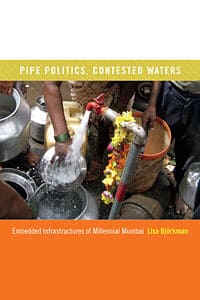
by Lisa Bjorkman
(Duke University Press 2015)
Mumbai is in many ways the paradigmatic city of India’s celebrated economic upturn, but the city’s transformation went hand-in-hand with increasing water woes. In her new book Lisa Bjorkman moves from slums to elite enclaves in analyzing the processes of mapping and politics in the city’s watery infrastructures. Exploring the workings of secondary markets, water brokers, and planning offices she reveals how power, knowledge and authority over how when and why water flows are being reconfigured as Mumbai makes itself a “world class”city. Interview by Ian M. Cook
Listen here and here:
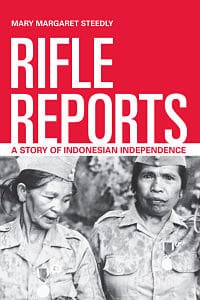
by Mary M. Steedly
(University of California Press 2013)
Mary M. Steedly‘s book, Rifle Reports: A Story of Indonesian Independence weaves the stories of Indonesian independence told to her on “the outskirts of the nation” together with discussions of memory practice and the writing of history via ethnography. Concentrating on the accounts of Karo women and their struggle against Dutch colonizers and Japanese invaders, Steedly situates the fight for independence in the day-to-day activities of North Sumatra’s populace. Interview by Nick Cheesman
Listen here or here:
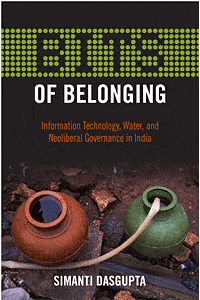
by Simanti Dasgupta
(Temple University Press 2015)
What links a water privatization scheme and a prominent software company in India’s silicon city, Bangalore? Simanti Dasgupta’s new book explores the was in which the corporate governance of IT is seen as a model for urban development in contemporary India. Through ethnographic research into both a water privatization scheme and the practices of an IT company, Dasgupta reveals the similarities that cross-cut both domains as new and old inequalities are produced. Interview by Ian M. Cook
Listen here or here:
Featured image by Marketa (flickr, CC BY-SA 2.0)








